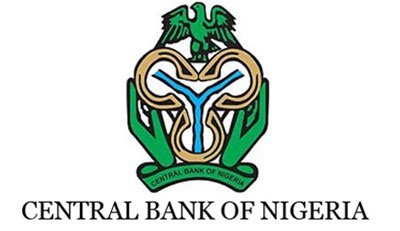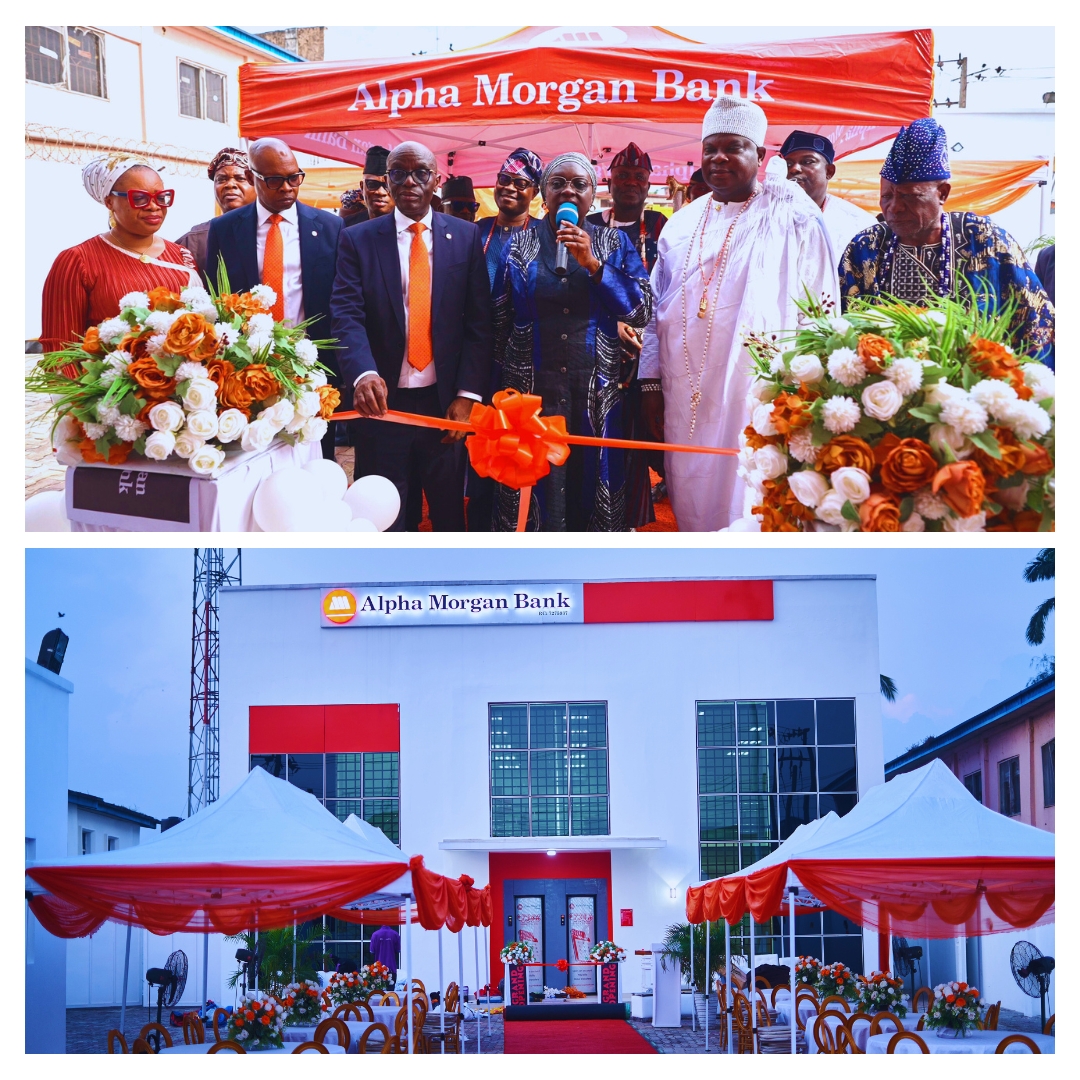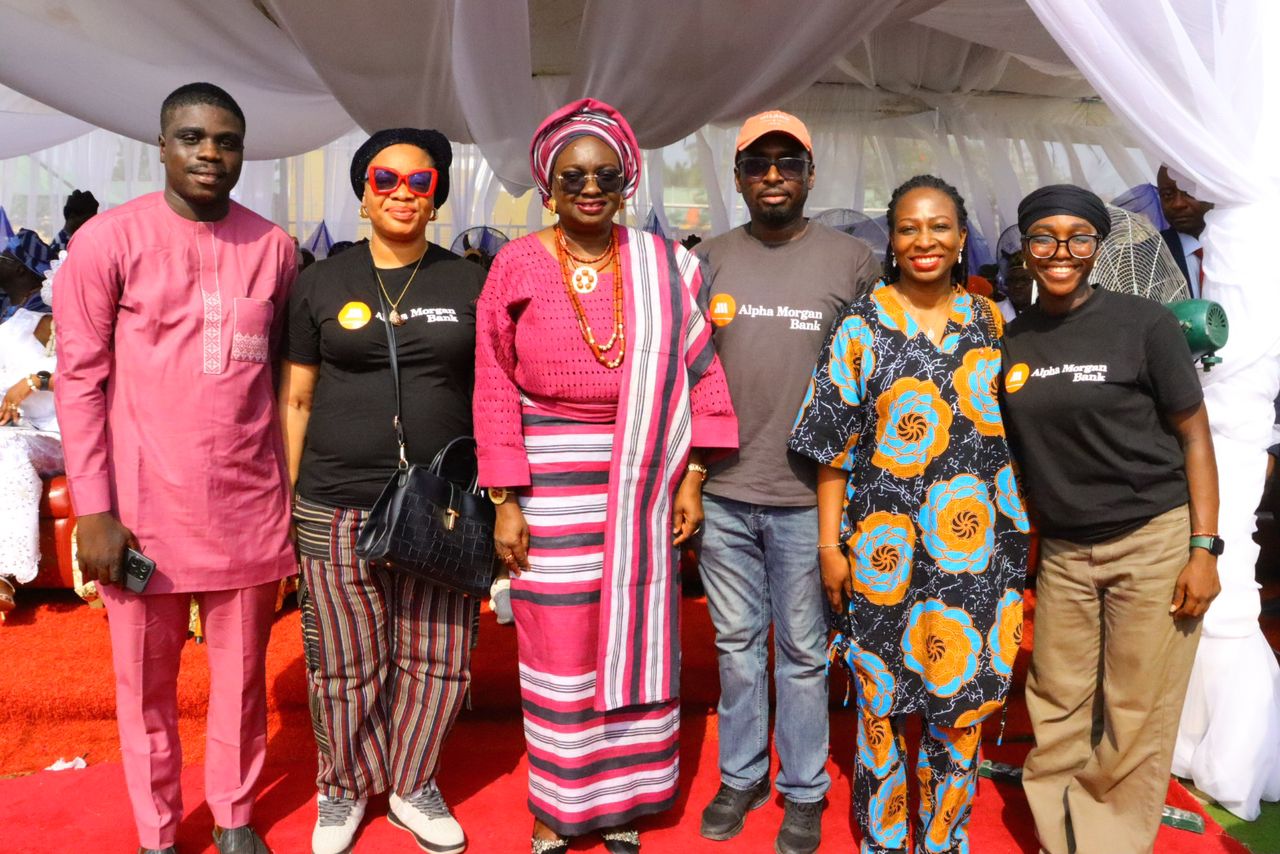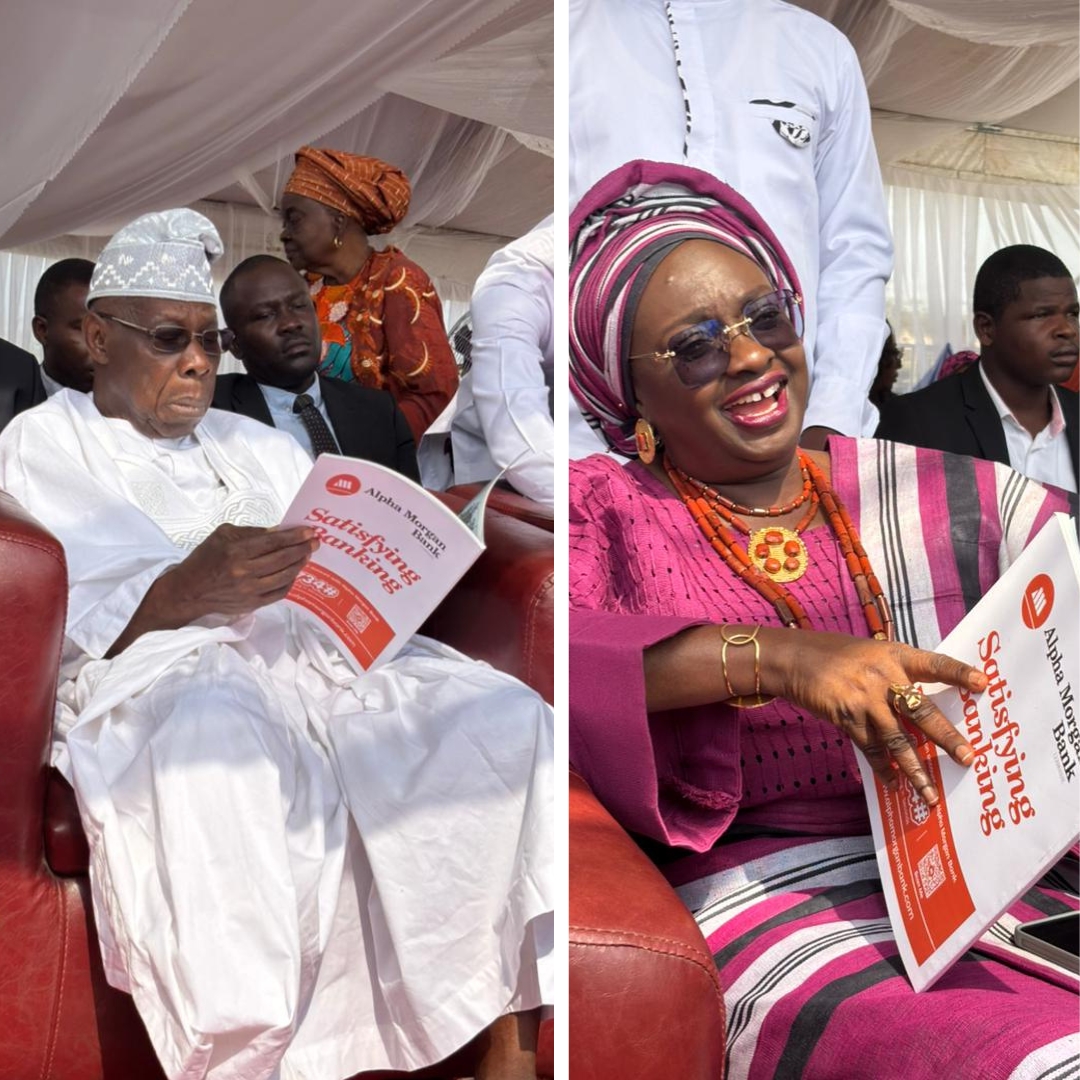Bank
Banks Are Not Responsible For Forex for International Students – Financial Expert

Banks Are Not Responsible For Forex for International Students – Financial Expert
A banking expert and financial analyst, Olajide Brown has commented on the recent viral post by a Nigerian final-year student of Greenwich University in the United Kingdom (UK) who threatened to commit suicide if his tuition fee was not paid. The student, who took his lamentation to social media on Twitter via the handle @RealityOflilife, called out a commercial bank and the central bank for not paying his tuition fees in British Pounds. In his post, he threatened to commit suicide if his request was not granted after receiving a mail from the school management of his suspended studentship with a deadline.
Olajide urged the general public not to be swayed by social media outbursts and antics but to treat issues based on facts. According to him, “the young student is just emotional and trying to elicit public sympathy. Due to the scarcity of forex in the country and the sheer number of students currently schooling abroad, it is difficult for the central bank to accede to the requests for foreign exchange for school fees abroad in a short period, as the apex bank will have to source for the forex. Currently, banks have thousands of requests, and because of the scarcity of forex, there is usually an average of about four months waiting time before each request is processed”. Students know this because a good number of banks have communicated this to their customers.
Speaking further, Olajide averred: “when I saw the post on Twitter and read through, it portrayed the student’s mischief or ignorance of how the forex for school fees payment operates. Apart from the fact that he didn’t apply on time, if the request for foreign currency for school fees payment is received by a bank, it will take a minimum of about four months for the central bank to provide the foreign currency because they have thousands of requests from students from universities across the globe. Therefore, it is not banks’ fault; they will only treat individual transactions based on the supply of forex from the central bank”.
Speaking on the student’s threat, Olajide said that it is bizarre that the student is claiming that his studentship is to be terminated on account of failure to pay school fees. The practice is that studentship could be deferred, or a certificate will not be issued until school fees are paid.
Olajide noted that the central bank is magnanimous in providing forex for school fees as this is not one of its functions, and the practice is not obtainable in other countries.
According to him, “if you want to study abroad, you source the requisite foreign currency and pay your school fees; that is what happens everywhere in the world”. Continuing, he noted that the central bank is actually subsidizing the cost of education for Nigerians who are studying abroad, who is subsidizing the school fees of Nigerians studying at home? He, therefore, urged students and parents to begin to think of alternative sources of payment of school fees because the persistent scarcity of forex may lead to the discontinuation of the largesse from the central bank.
He recalled that some time ago in 2018, President Muhammadu Buhari had, in an interview on Al Jazeera TV, hinted that the country could not afford to continue to provide forex for school fees payment abroad. He expressed surprise that the central bank is still providing forex for school fees payment after the president’s remark, especially now that the forex situation has worsened.
He called on the government to resolve the issues in the nation’s education sector to make it more attractive to Nigerians to study at home as it has been proven and demonstrated that Nigeria’s educational system is good enough and competitive, citing the plethora of Nigerians who studied in Nigeria and are excelling around the world. He also advised students currently abroad to apply for school fees payment on time.
Bank
Separating Fact from Confusion: What Nigerians Need to Know About the 7.5% VAT on Banking Service Fees

In recent weeks, digital-banking customers and social media, especially on Twitter have raised concerns about deductions labelled as “VAT” on transfers and other charges.
Some dangerously false narratives, which when you take a critical look, you’ll clearly see that they have been orchestrated and sponsored by malicious elements, have given the impression that the 7.5% Value Added Tax (VAT) is a new or arbitrary charge introduced by fintechs, or that it applies to the amounts customers send. These claims are misleading and deserve careful clarification which is the purpose of this piece.
First, it’s important to understand how VAT works in Nigeria’s financial sector today. VAT on fees and charges for financial services has long been part of Nigeria’s tax system. The then Federal Inland Revenue Service (FIRS) had issued information circulars on March 31, 2021 where it stated that VAT on Financial Services (Circular No. 2021/04) that most fees, commissions, and charges by financial institutions (banks, insurance companies, brokers) are subject to 7.5% VAT.
This justifies a recent advertorial the Nigeria Revenue Service (NRS) which stated unequivocally that VAT was not newly introduced on banking service charges by recent tax reforms, and that it did not impose a new tax obligation on customers in that regard.
However what was left unsaid in that publication was that on the 12th of December, the tax agency had written to all financial institutions and payment gateways based on past meetings with operators that following from the new Tax Act, they were reminded of their mandatory obligations to collect, deduct and remit VAT at the prescribed rate.
The Agency then gave an 18- day grace period to all players to configure and align their systems while directing full compliance with the directive with effect from January 19, 2026. And so, some fintechs sent messages to their customers in the spirit of clarity and transparency.
It must be said that what has changed is that in a bid to widen the tax net, microfinance banks and fintechs who were not obligated to deduct and remit said VAT before now, have now become compelled to do so. The enforcement and standardised collection of VAT across banks and fintech platforms including mobile transfers, USSD transaction fees, and card issuance fees with compliance deadlines issued by tax authorities. So why anyone would vilify any financial institution obeying the laws of the land beats my imagination.
For those who have raised questions around transparency and wrongly suggesting that fintechs are suddenly imposing new, unexplained costs on users – as it has been explained above, this is a matter of regulatory compliance, not a lack of transparency or customer exploitation. These VAT deductions are not new fees created by the companies themselves, and providers are not arbitrarily raising their prices.
In closing, two things that everyone must bear in mind as we move forward in this new tax climate – all stakeholders including fintech platforms and regulators must communicate better and clearly. Nigerians must refrain from peddling unsubstantiated claims and malicious narratives, it has no benefits for anyone and erodes trust in systems.
Bank
FirstBank Introduces Exclusive 500-Seater Bleacher at Carnival Calabar & Festival 2025

FirstBank Introduces Exclusive 500-Seater Bleacher at Carnival Calabar & Festival 2025
Lagos, 26 December 2025 – FirstBank, West Africa’s premier financial institution and financial inclusion services provider, has officially announced its sponsorship of the Carnival Calabar & Festival 2025, unveiling a landmark addition set to redefine the carnival experience — the first-ever private premium seating area at the event.
The highlight of FirstBank’s participation is the construction of a 500-seater premium bleacher, designed to provide comfort, safety, and an elevated viewing experience for carnival enthusiasts.
Speaking on the sponsorship, the Acting Group Head Marketing and Corporate Communications, FirstBank, Olayinka Ijabiyi, noted that the carnival aligns with the Bank’s First@Arts initiative, a platform dedicated to supporting the creative arts value chain across Nigeria. He said, “We recognise the transformative power of the arts, including carnivals, in inspiring people and strengthening national unity. For more than 131 years, we have supported platforms that promote self-expression, social reflection and cultural exchange. Our investment in the Carnival Calabar & Festival demonstrates our commitment to preserving the nation’s rich cultural heritage through First@Arts.”
“As part of our sponsorship this year, we are introducing the first-ever private 500-seater premium bleacher to further elevate the carnival experience. This exclusive seating is designed to provide exceptional comfort and an unforgettable viewing experience for attendees,” Ijabiyi added.
The Chairman of the Cross River State Carnival Calabar Commission, Gabe Onah, also commented on FirstBank’s sponsorship. “FirstBank’s involvement is a strong demonstration of private-sector support for culture and tourism. This partnership not only enhances the overall quality of the carnival but also strengthens its global appeal,” he said.
The Carnival Calabar & Festival 2025 is officially marketed by Okhma Global Limited, the appointed Official Marketer responsible for brand partnerships, promotional engagements, and ticket sales. Okhma Global Limited has partnered with the Cross River State government in delivering Carnival Calabar & Festival for over ten years, playing a key role in strengthening the carnival’s commercial growth and global visibility.
Bank
Alpha Morgan Bank Backs Cultural Preservation at the 2025 Iganmode Festival

Alpha Morgan Bank Backs Cultural Preservation at the 2025 Iganmode Festival
Alpha Morgan Bank has reaffirmed its commitment to cultural preservation and community development as one of the major sponsors of the recently concluded Iganmode Cultural Festival (Odun Omo Iganmode) held in Sango-Ota, Ogun State.
The annual festival, a landmark cultural celebration in the ancient town of Ota, showcased the rich heritage, history, and identity of the Awori people. The event came alive with vibrant displays of traditional music, dance, colourful regalia, and performances that reflected the deep-rooted customs and values of the community.
Alpha Morgan Bank’s sponsorship followed closely on the heels of the recent launch of its Sango-Ota branch, further underscoring the Bank’s dedication to supporting local initiatives, promoting indigenous culture, and fostering sustainable community development in Ota and its environs.
The ceremony attracted an impressive array of dignitaries, including former President of Nigeria, His Excellency Chief Olusegun Obasanjo; Deputy Governor of Ogun State, Engr. (Mrs.) Noimot Salako-Oyedele; and the Olota of Ota, His Majesty, Prof. Adeyemi Obalanlege, alongside several other traditional rulers and members of royal households from across the state. Their presence highlighted the cultural and historical significance of the festival to Ogun State and the wider Yoruba nation.
Alpha Morgan Bank’s participation as a major sponsor reflects its broader corporate vision of strengthening community values and supporting initiatives that promote Nigeria’s rich cultural heritage. The Bank joined thousands of attendees in celebrating a festival that continues to serve as a symbol of unity, pride, and cultural continuity for the people of Ota.
The 2025 edition of the Iganmode Festival was widely acclaimed as a success, leaving guests and participants with lasting impressions of a colourful, well-coordinated celebration that honoured tradition while fostering communal harmony.
-

 celebrity radar - gossips6 months ago
celebrity radar - gossips6 months agoWhy Babangida’s Hilltop Home Became Nigeria’s Political “Mecca”
-

 society6 months ago
society6 months agoPower is a Loan, Not a Possession: The Sacred Duty of Planting People
-

 Business6 months ago
Business6 months agoBatsumi Travel CEO Lisa Sebogodi Wins Prestigious Africa Travel 100 Women Award
-

 news6 months ago
news6 months agoTHE APPOINTMENT OF WASIU AYINDE BY THE FEDERAL GOVERNMENT AS AN AMBASSADOR SOUNDS EMBARRASSING











